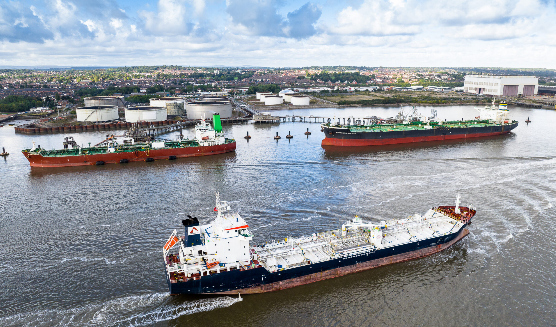Stanlow Terminals has signed a Memorandum of Understanding (MoU) with Eni UK, to explore the development of carbon dioxide (CO2) collection, shipping, and storage at the Stanlow Terminal location.
In particular, Stanlow Terminals and Eni UK will evaluate opportunities to establish an open-access CO2 transport and storage terminal which will be capable of receiving, gathering and storing CO2 from industrial emitters and other sources via shipping from dispersed locations. The objective is to ultimately connect multiple emitters with Eni UK’s licenced storage location through an open access system, facilitating the future sequestration of substantial volumes of CO2.
Developing CO2 ship transportation will play a significant role in the expansion of CCS infrastructure, by offering feasible and flexible routes between sources and storage sites. The infrastructure would provide many more industrial companies the opportunity to transport captured CO2 for storage in depleted gas fields.
The agreement follows Stanlow Terminal’s announcement of plans to also develop open access green ammonia facilities on the River Mersey, supporting the ambition of Essar Energy Transition to become Europe’s leading integrated energy transition hub.
EET’s investment programme will play a major role in accelerating the UK’s low carbon transformation, supporting the government’s decarbonisation policy and creating highly skilled employment opportunities at the heart of the Northern Powerhouse economy.
Eni UK is leading the development of carbon dioxide transport and storage for the HyNet North West consortium in the North West of the UK, which will transform one of the country’s most energy intensive industrial districts into the first low-carbon industrial cluster in the world. Eni UK has developed extensive
experience in reservoir management over many decades and intends to apply its skills to repurpose part of its existing upstream assets to store carbon dioxide in depleted fields in Liverpool Bay, helping the UK to achieve its net zero targets by decarbonising industrial activities in the region quickly and at
a competitive cost.






























































